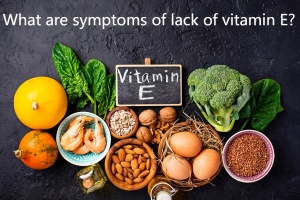What are symptoms of lack of vitamin E?

Vitamin E is a fat-soluble antioxidant that plays a vital role in protecting cells from oxidative damage, supporting immune function, and maintaining healthy skin and eyes. A deficiency in vitamin E is relatively rare but can lead to serious health issues if left untreated.
Common Symptoms of Vitamin E Deficiency
One of the most noticeable symptoms is muscle weakness. Without enough vitamin E, muscles can lose strength due to oxidative stress on muscle tissue. This often leads to reduced endurance and difficulty with physical activities.
Another symptom is poor coordination and balance, also known as ataxia. This occurs when the deficiency damages the cerebellum, the part of the brain that controls movement and balance.
People with a lack of vitamin E may also experience numbness or tingling in the hands and feet. This is linked to peripheral neuropathy, where nerve damage disrupts normal sensations.
Vision problems can also develop over time. Vitamin E deficiency can weaken the retina, potentially causing blurry vision or vision loss in severe cases.
In addition, weakened immune function is common. A low vitamin E level can make the body more prone to infections because it affects the way immune cells respond to threats.
Who Is at Risk?
Vitamin E deficiency often affects people with conditions that impair fat absorption, such as cystic fibrosis, Crohn’s disease, or certain liver disorders. Premature infants and individuals with rare genetic disorders may also be at higher risk.
How to Prevent Vitamin E Deficiency
To avoid these symptoms, include vitamin E-rich foods in your diet, such as almonds, sunflower seeds, spinach, avocado, and vegetable oils. In some cases, supplements may be recommended by a healthcare provider.
Early detection and proper nutrition are key to preventing the serious effects of vitamin E deficiency.
